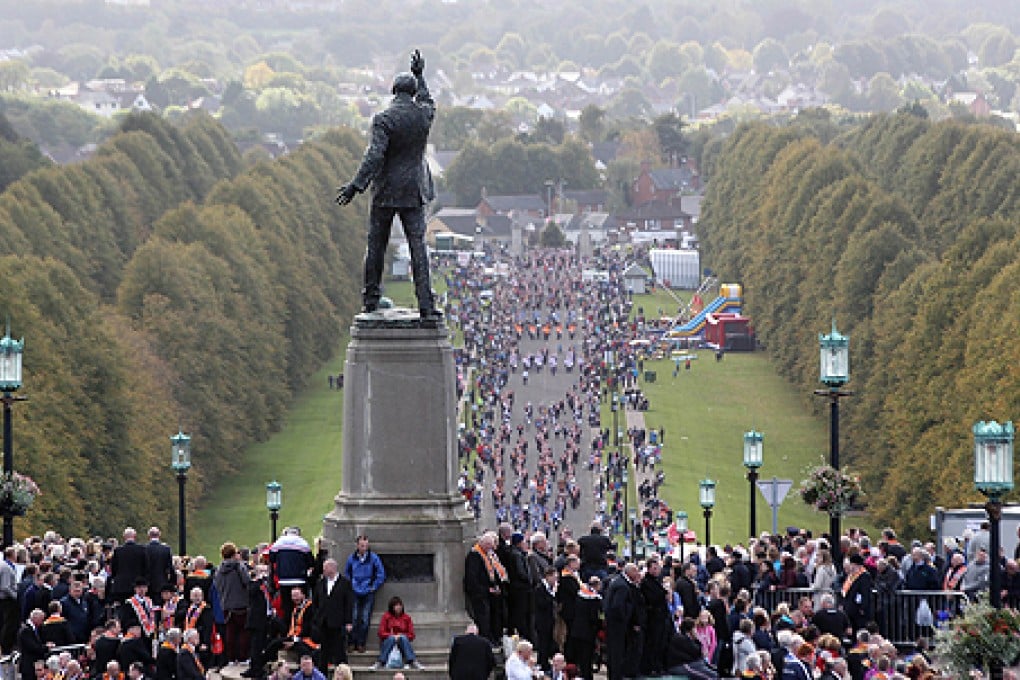
Tens of thousands of pro-British unionists marched through Belfast on Saturday to mark 100 years since a landmark event in the history of Ireland’s partition.
An estimated 30,000 people joined the parade to commemorate the centenary of the Ulster Covenant, a landmark declaration signed by nearly half a million Protestants who vowed to defend themselves against rule from Dublin.
The covenant laid the foundations for the partition of Ireland and the creation of Northern Ireland as a British province in 1921.
The march – one of the biggest loyalist parades ever held in Belfast – passed off peacefully despite fears of clashes with the Catholic minority.
The Police Service of Northern Ireland (PSNI) mounted its biggest operation in 20 years for the march, the BBC reported.
“Today there’s been an overwhelming mood of dignity and respect and enjoyment and mutual co-operation,” the force’s Chief Constable Matt Baggott told the broadcaster.
The 10-kilometre march set off from central Belfast just after 10am (5pm Hong Kong time) and headed east towards a cultural festival being held in the grounds of Northern Ireland’s parliament at Stormont.